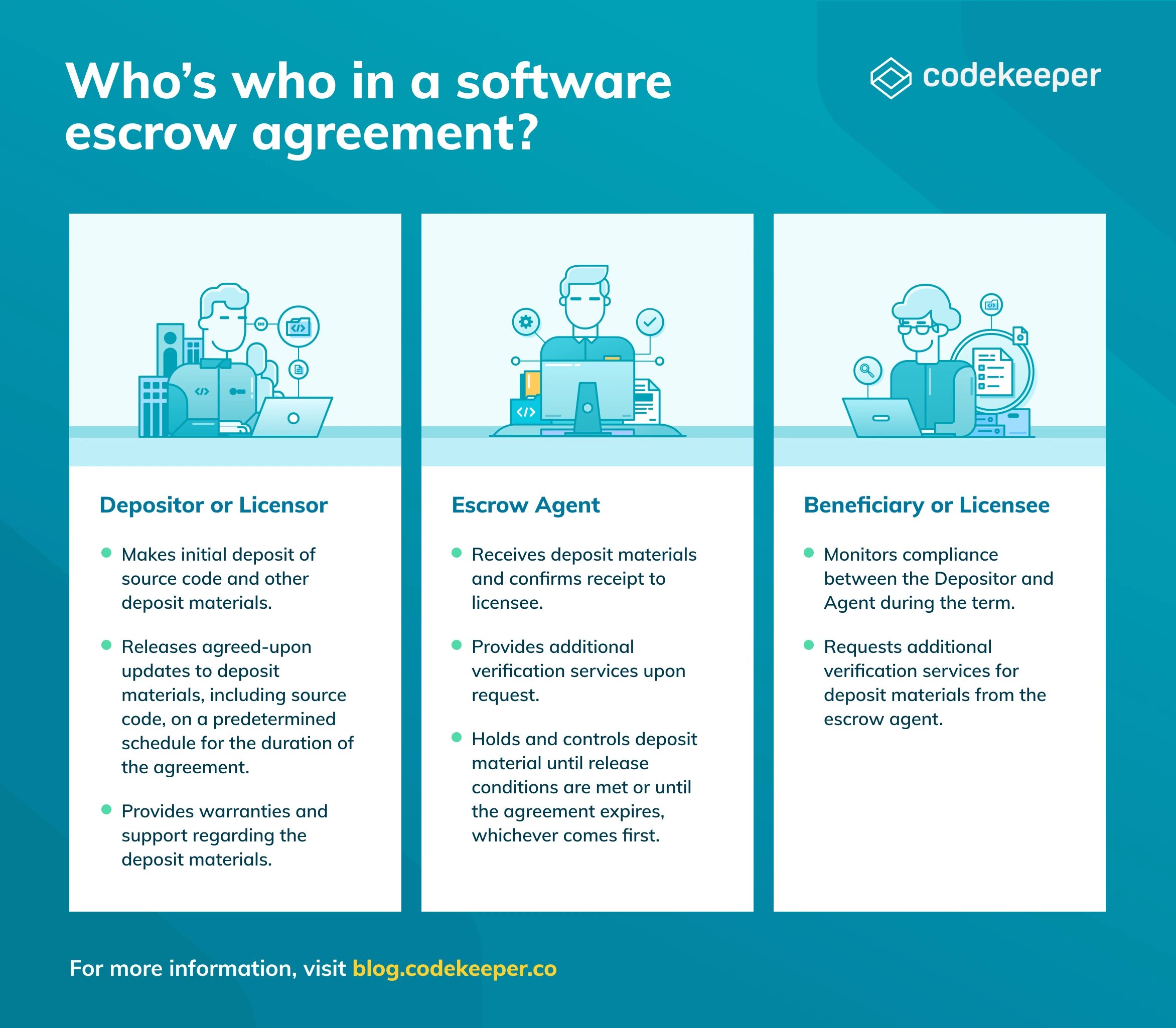The Ultimate Guide to Software and Source Code Escrow - Chapter 2
Who's who in a SaaS/Data/Escrow Agreement? What does the Depositor do? What should do Beneficiary keep in mind? And what makes an Escrow Agent reliable? We got you covered in this blog post.

By Content Team
Table of contents:
Who’s who in a software escrow agreement?
We use the following terms interchangeably throughout this article:
The licensor is typically a software developer or vendor who deposits source code and other materials into escrow. They're also referred to as the depositor. The client, or the authorized end-user, is typically referred to as the beneficiary or licensee. A neutral third party, such as Codekeeper, typically serves as the escrow agent, providing secure storage of the source code and other materials, and making available (releasing) the contents of an escrow account to its beneficiary (or, beneficiaries) — upon a release condition being met.

Depositor or Licensor
Typically, the depositor/licensor tends to be a smaller software development team in comparison to their beneficiary counterpart. Once one of their clients begins to rely more heavily on their software for operations, concerns usually arise over the continuity and security of that system.
During renegotiation of their licensing agreement, the client might request that the system in question be deposited into escrow. Should any adverse, unforeseen event take place, the client will be able to retrieve the valuable code and IP, and resume operations as usual.
These smaller development teams can also use software escrow as a selling point for their services, reassuring potential clients that if anything happens to the firm, the IP is secure in storage, up to date, and ready to be released once a trigger event takes place.
Beneficiary or Licensee
Beneficiaries come from a wide array of industries such as logistics, retail, financial services and many more.

As an organisation becomes more and more reliant on an outside provider’s software, they may look to initiate a software escrow as a sort of insurance policy to protect the mission critical IP. They can draw up a fully customised escrow agreement which should outline under what conditions the escrowed material is released to them. Some common release terms would be if the provider were to go bankrupt, become insolvent, or fail to maintain the system at hand. As long as all terms are agreeable for the parties involved, the escrow contract can be signed and implemented.

Escrow agent
The escrow agent provides secure storage for the data. They will only release the content if the conditions are met. This way the Depositor and Beneficiary have a middle man securing the data and monitoring the release.
An escrow agent should be able to provide verification services upon request. For more information on how to securely outsource your development, also read “6 Tips for Securing Your Development Outsourcing".


This article is part of the FREE Ebook:
The Ultimate Guide to Software and Source Code Escrow
Do you want to be the first one to know when the Ebook is published? Subscribe to our newsletter here .



